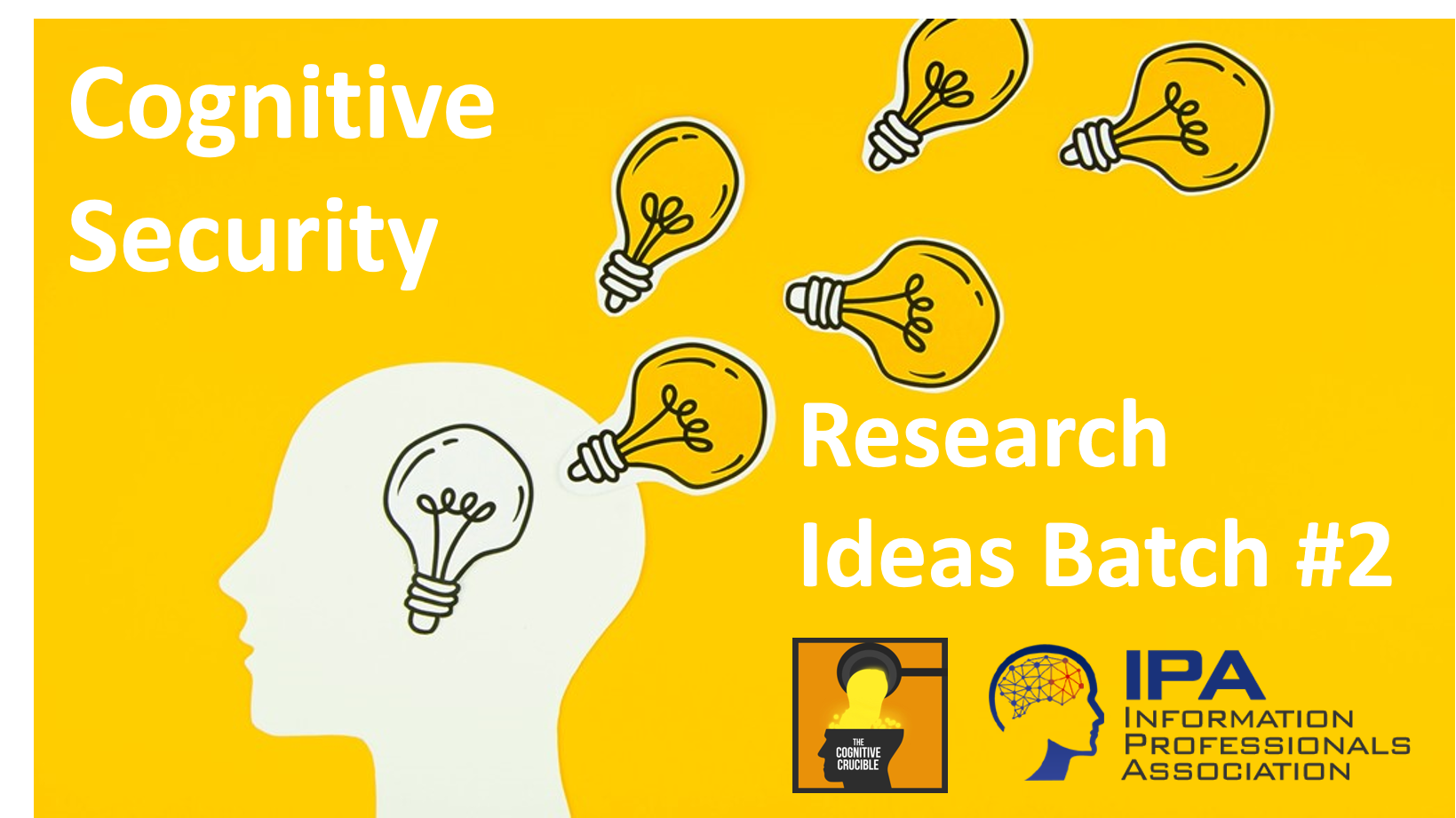Several months ago, IPA Board Members suggested several fruitful research topics in IPA Research Batch #1.
Recently, the Cognitive Crucible podcast started collecting research ideas from guests. Here’s a second batch of research ideas for information professionals to consider. These topics represent pressing areas of interest related to operations in the information environment. Doctoral, Master’s, and undergraduate college students who are interested in contributing to the body of knowledge can use these ideas and accompanying Cognitive Crucible podcast discussions for inspiration.
- Brian Schweers suggests: How do we know that we’re achieving effects? How do we measure effects in the cognitive realm and tie it to decision making? #102 Brian Schweers on the All Domain Effects Team Concept
- Vanessa Oteros suggests that researchers examine ways to get people out of conspiracy theory rabbit holes or extreme polarization rabbit holes. She also asserts that media trust is over studied and that researchers should focus less on that problem. #107 Vanessa Otero on News Ecosystem Health
- Jocelyn Brady wants researchers to figure out how we get kids to understand better fundamental concepts about their own brains–especially neuroplasticity, which can be viewed as a general umbrella term that refers to the brain’s ability to modify, change, and adapt both structure and function throughout life and in response to experience. #108 Jocelyn Brady on Brain Play
- Sean McFate asks several questions worthy of examination. First, how can a democracy fight secretive wars without losing its democratic soul? Second, strategic culture can eclipse strategic IQ; so, how can a strong strategic culture be broken? Finally, what is strategic thinking, and how are good strategic thinkers created? #110 Sean McFate on the New Rules of War
- Victoria Coleman suggests that promulgating digital human rights globally is a problem worthy of study. In a democracy, there is tension between protecting individual freedoms while simultaneously ensuring that collective freedoms are not impacted. Digital human rights must be studied, understood, and co-evolved as containing both technology and policy components in order to protect group and individual outcomes. #111 Victoria Coleman on Science, Technology, and Innovation
- Jake Sotiriadis believes that we need to spend more time learning about and learning from the robust future studies literature and different methodological approaches like: back casting, causal layered analysis, traditional scenario development, the futures wheel, plus others. He encourages students to first master a narrow area of expertise and then question the status quo. Ask the question: Where are there opportunities? How do we capture emergent phenomena? How do we anticipate? #112 Jake Sotiriadis on the Value Proposition of Future Studies
- Jeff Engstrom believes that students should help assess the lessons which the PLA is learning from Ukraine and elsewhere, and how these lessons are shaping China’s understanding of systems and systems warfare. #113 Jeff Engstrom on Chinese Systems Warfare

